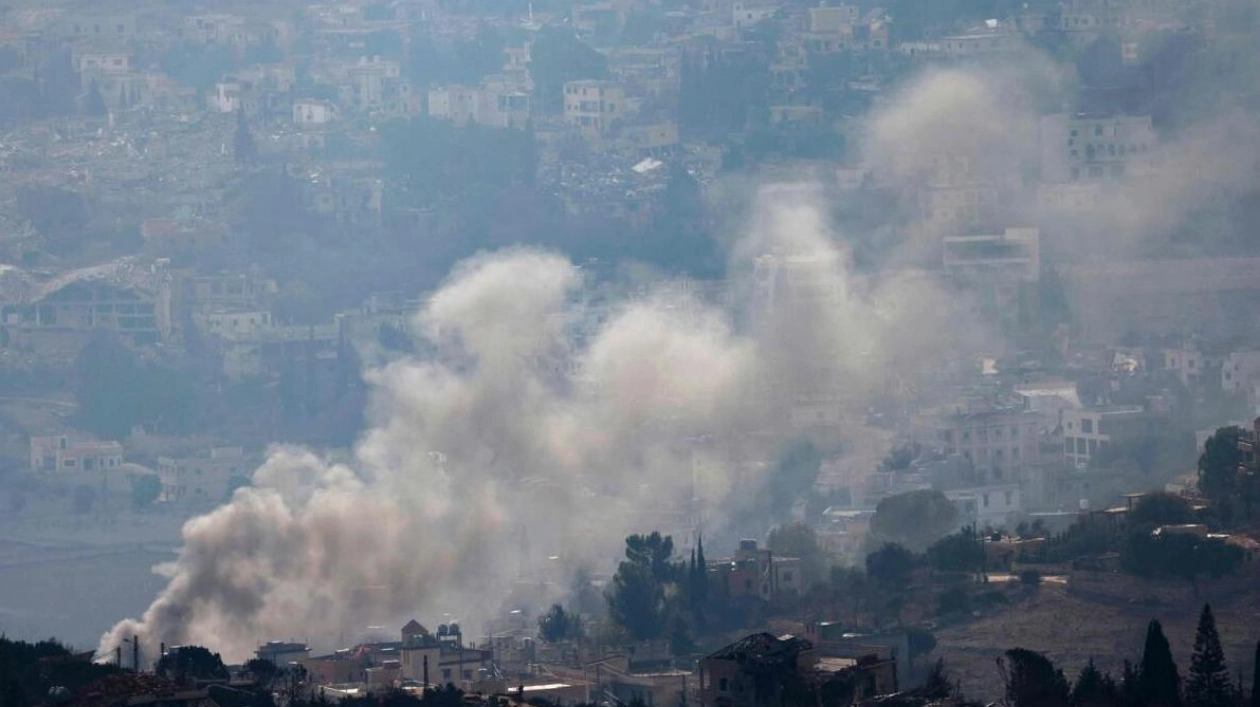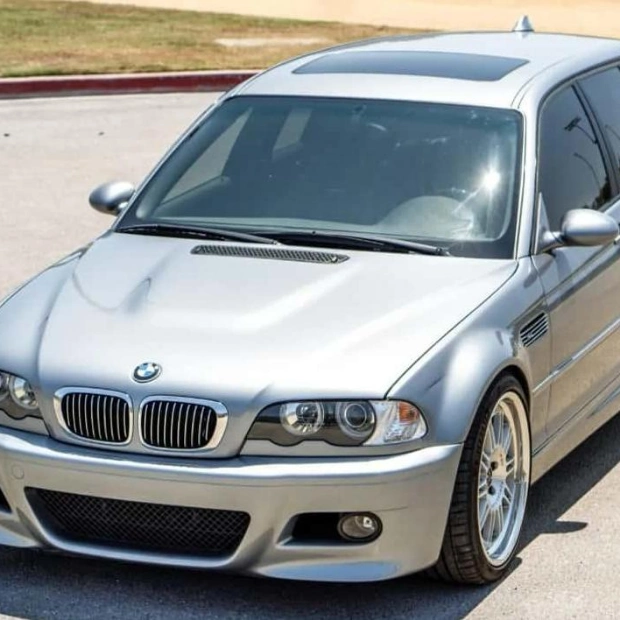A photograph captured from a vantage point in northern Israel, near the border with Lebanon, reveals plumes of smoke rising over the village of Meiss El-Jabal on November 28, 2024. The Israeli military confirmed on the same day that it had targeted a facility in southern Lebanon. Photo: AFP
Israel announced an air strike on a Hezbollah weapons storage facility on Thursday, marking the first such action since a ceasefire in the conflict with Lebanon came into effect. The truce, which was implemented on Wednesday, aims to bring an end to the war that has claimed thousands of lives in Lebanon and triggered widespread displacement in both Lebanon and Israel. The conflict began when Hezbollah launched attacks into Israel in support of its Palestinian ally Hamas, following Hamas's unprecedented assault on Israel in October.
Israel redirected its focus from Gaza to Lebanon in September, aiming to secure its northern border from Hezbollah attacks, which dealt significant blows to the Iran-backed Shiite Muslim movement. On Thursday, Lebanon deployed troops and tanks across the southern region, traditionally under Hezbollah's influence, where only the army and UN peacekeepers are permitted to maintain a presence under the terms of the ceasefire.
The Israeli military stated, "A short while ago, terrorist activity was identified in a facility used by Hezbollah to store mid-range rockets in southern Lebanon," adding that "the threat was thwarted" by its air force. Nazih Eid, mayor of Baysariyeh in south Lebanon, informed AFP that a strike had impacted an area of his town, specifically a forested zone not accessible to civilians.
The agreement to end the war in Lebanon was brokered by Israel's top ally, the United States, and France. Under the terms of the agreement, Israeli troops will maintain their positions, but a 60-day period will begin during which the Lebanese military and security forces will deploy towards the south. Subsequently, Israel is expected to initiate a phased withdrawal, ensuring no vacuum is created that Hezbollah or other groups could exploit.
Both the Israeli and Lebanese militaries have advised residents of frontline villages to defer their return home. Earlier on Thursday, Israeli fire wounded two individuals in a border village, according to Lebanon's official National News Agency. The Israeli army reported that "over the past hour, several suspects were identified arriving with vehicles to a number of areas in southern Lebanon, breaching the conditions of the ceasefire." The army "opened fire toward them," the statement read, emphasizing that the Israeli military "remains in southern Lebanon and will actively enforce violations of the ceasefire agreement."
For the most part, the ceasefire appeared to be holding. A Lebanese army source disclosed that its forces were "conducting patrols and setting up checkpoints" south of the Litani River without advancing into areas where Israeli forces were still present. The Israeli army announced a nighttime curfew for areas south of the river, which are located near the border.
While there was widespread relief in Lebanon that the war had ended, the country faces a protracted recovery process. Tens of thousands of Lebanese who fled their homes during the war have returned to find their towns and villages devastated. "Despite all the destruction and the sorrow, we are happy to be back," said Umm Mohammed Bzeih, a widow who fled the southern village of Zibqin with her four children two months ago. "I feel as if our souls have returned," she said, visibly exhausted as she swept up the shattered glass and rubble that carpeted the floor.
In the border village of Qlayaa, residents celebrated the arrival of Lebanese soldiers by throwing rice and flowers. The majority-Christian village is situated in an area predominantly inhabited by Shiite Muslim communities. Lebanon is deeply divided along political and sectarian lines, with Hezbollah holding significant sway among the Shiite population.
Even before the conflict, Lebanon had been grappling with political and economic crises, with World Bank data indicating that poverty had tripled over the past decade. On Thursday, there was a glimmer of hope as the official National News Agency reported that parliament would convene to elect a president on January 9, following a two-year vacancy.
Hezbollah, the only armed group that did not disarm following the 1975-90 civil war, has built its popularity by providing health and education services. It maintains a formidable arsenal, primarily supplied by Iran, which is widely considered more powerful than that of the Lebanese army. Hezbollah declared on Wednesday that it had achieved "victory" in the war against Israel, following the implementation of the ceasefire. It also stated that its fighters would "remain in total readiness to deal with the Israeli enemy's ambitions and its attacks."
However, the war saw Israel deal Hezbollah a series of unprecedented blows, notably the killing of its longtime leader Hassan Nasrallah in September. Hezbollah lawmaker Hassan Fadlallah informed AFP that his group was cooperating with the army's deployment in the south. There is "full cooperation" with the Lebanese state in strengthening the army's deployment, he said, adding that the group had "no visible weapons or bases" but "nobody can make residents leave their villages."
In northern Israel, which has endured steady attacks from Hezbollah for over a year, there was hope mixed with skepticism about the truce's longevity. Nissim Ravivo, a 70-year-old resident of the coastal city of Nahariya near the border with Lebanon, expressed disappointment. "It's a shame, we should have continued for at least another two months and finished the job," he said. "We still don't feel safe and we are not happy about it." Lebanon reports that at least 3,961 people have been killed in the country since October 2023, with the majority of casualties occurring in recent weeks. On the Israeli side, the hostilities with Hezbollah have resulted in the deaths of at least 82 soldiers and 47 civilians, according to authorities.
Source link: https://www.khaleejtimes.com






